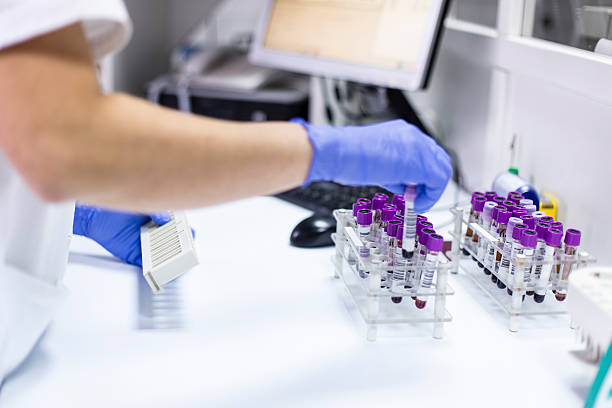Understanding the Financial Aspects of Blood Donation
Blood donation is a noble and life-saving act that plays a crucial role in the healthcare system. However, many people are curious about the financial aspects associated with blood donation, particularly the cost of donating blood and whether donors are compensated for their efforts. This article explores the various dimensions of blood donation, including the costs involved, compensation structures, and the broader implications of financial considerations in the context of blood donation.
The Cost of Blood Donation: An Overview
When discussing the financial aspects of blood donation, it is essential to understand that the donation itself is typically free for the donor. In most countries, blood banks and donation centers do not charge individuals for the act of donating blood. The primary goal of these institutions is to collect blood to meet the needs of patients requiring transfusions, and they rely on voluntary donations to achieve this objective.
However, while donating blood does not incur a cost for the donor, there are several costs associated with the entire process of blood collection and distribution. Blood donation centers must cover expenses such as maintaining sterile equipment, testing blood for diseases, and ensuring proper storage and transportation of donated blood. These costs are generally funded through government support, private donations, and sometimes by billing healthcare providers who use the blood.
Compensation for Blood Donation
The question of whether donors are compensated for their blood donation can vary depending on the country and the type of blood donation center. In many places, blood donation is entirely voluntary and unpaid. This approach is based on the principle that blood donation should be an altruistic act, motivated by the desire to help others rather than financial gain.
In some countries, however, blood donors may receive compensation for their time and effort. This compensation can come in various forms, such as small monetary payments, gift cards, or other incentives. The rationale behind offering compensation is to encourage more people to donate blood and to make the process more appealing, particularly in regions where voluntary donation rates are low.
Blood Donation in the United States
In the United States, blood donation is primarily a voluntary and unpaid process. The American Red Cross and other major blood donation organizations rely on altruistic donors to supply the blood needed for patients in hospitals and clinics. While donors in the U.S. do not receive direct financial compensation, they may be offered tokens of appreciation, such as T-shirts, coffee mugs, or certificates of recognition.
Blood donation centers in the U.S. are funded through a combination of government grants, private donations, and billing hospitals for the blood and related services. The cost of collecting, testing, and processing blood is significant, but these costs are absorbed by the blood banks and passed on to healthcare providers as needed.
Blood Donation in Other Countries
Globally, the approach to blood donation varies. In some countries, particularly where voluntary donations are scarce, blood banks may offer financial incentives to attract more donors. These incentives can help to increase the supply of blood and ensure that there is enough available for those in need.
For example, in countries with lower donation rates, financial compensation may be used as a tool to encourage participation. This compensation might be in the form of direct payments, transportation allowances, or other benefits. However, this approach can be controversial, as some argue that it may undermine the altruistic nature of blood donation and potentially lead to other issues, such as increased risks of bloodborne diseases if donors are primarily motivated by financial gain.
The Ethical Considerations of Financial Compensation
The ethical implications of compensating blood donors are a topic of ongoing debate. Proponents of financial compensation argue that it can help to address blood shortages and increase donation rates, particularly in areas where voluntary donations are insufficient. They believe that providing incentives can be a practical solution to ensure a steady supply of blood for medical needs.
On the other hand, critics argue that offering financial compensation can compromise the spirit of voluntary donation and potentially lead to negative consequences, such as lower quality blood donations or an increased risk of disease transmission. They advocate for maintaining the principle of voluntary, unpaid donations to preserve the integrity of the blood donation process and to ensure that donors are motivated by a genuine desire to help others.
The Future of Blood Donation and Compensation
As the demand for blood continues to grow, blood banks and healthcare organizations are exploring various strategies to balance the need for donations with the ethical considerations of compensation. Innovations in blood collection technology, improved donor recruitment strategies, and enhanced public awareness campaigns are all part of the effort to ensure a steady and safe blood supply.
In some regions, there may be a shift towards a hybrid model, where both voluntary and compensated donations coexist. This approach aims to leverage the benefits of both systems while addressing the limitations and challenges associated with each. By carefully managing the balance between altruism and compensation, blood banks can work towards a sustainable and effective blood donation system.
Conclusion
Understanding the financial aspects of blood donation involves recognizing that while the act of donating blood is typically free for the donor, there are significant costs associated with the collection, testing, and distribution of blood. Compensation for donors varies by country and organization, with most places relying on voluntary, unpaid donations. The ethical considerations surrounding financial incentives continue to be a topic of debate, as the healthcare community seeks to balance the need for blood with the principles of altruism and fairness.
As we move forward, the goal remains to ensure that blood donation is both accessible and effective, meeting the needs of patients while respecting the values and motivations of donors. By staying informed and engaged with the evolving landscape of blood donation, individuals and organizations can contribute to a system that ultimately saves lives and supports the well-being of communities worldwide.




